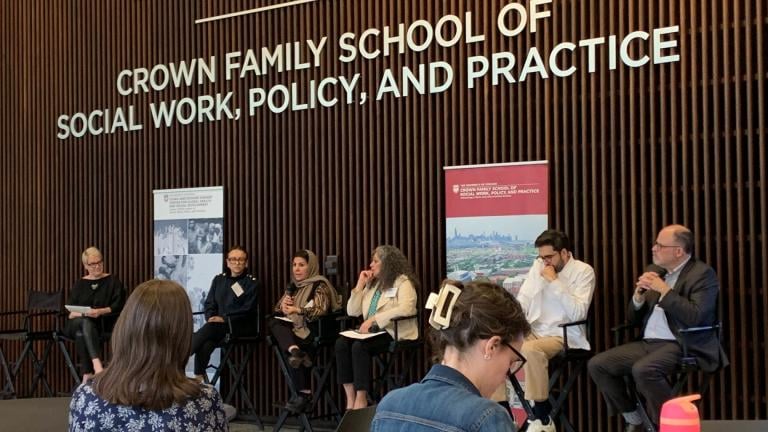Utility giants have agreed to stop selling sensitive information to Immigration and Customs Enforcement, among other law enforcement agencies.
For years, companies have sold data from cable, phone and power bills -- including names, home addresses, and more.
The move comes after pressure from Sen. Ron Wyden (D-OR) and a national “No Tech for ICE”campaign started in 2018 by Mijente, a national and political organizing hub for Latinos.
“A few years ago, we decided to sound the alarm that technology was being used for human rights abuses against our immigrant communities,” said Cinthya Rodriguez, organizer for Mijente. “In this particular situation, the National Consumer Telecom & Utilities Exchange has a database with utility information which is actually run exclusively by a data broker that we know as Equifax. It is then given into the hands of ICE.”
Supporters say it’s a win, but some loopholes remain, including here in Chicago.
A report from earlier this year reveals loopholes in Chicago’s sanctuary law which allow the Chicago Police Department to share information with ICE.
Nicole Hallett, associate clinical professor of law at the University of Chicago and director of the Immigrants’ Rights Clinic, says that a realm of data continues to fuel “the deportation machine” through the Fusion Center.
“It’s located within CPD, which actually is a collaboration between ICE, other federal law enforcement agencies and CPD,” Hallett said. “All data that gets collected by the city is put into the database and into the center. Any law enforcement agency can then access that data with very few protections to ensure that that data isn’t being used to try to deport people.”
Activists and organizers stress that not many people know their information is being used in this way.
“We often don’t think about our data or our privacy as much as we do about our physical self, or our physical safety,” Rodriguez said. “The Welcoming City Ordinance in Chicago has provided protections to communities around information sharing, but big data is presenting an alternative, almost a way of circumventing the Fourth Amendment.”
Still, Hallett says the recent development is a step in the right direction for immigrant communities.
“This recent announcement about utility records is really important,” Hallett said. “You can imagine that many, many people who are here undocumented have to get their water hooked up. They have to get their electricity hooked up, and to then use those records to deport them really drives people even further into the shadows.”
For many, the push for further protections for immigrant communities across the country continues.
“We’re very aware that this is a big, big problem that we’re dealing with and so we need a big multi-sector coordinated movement of folks that are willing to organize around this,” Rodriguez said. “We’ll continue working with law students, community members, investors, shareholders and tech workers in 2022 as data becomes even bigger.”








